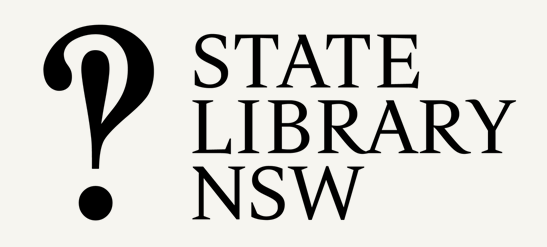Published April 2021; reviewed May 2023
NSLA recognises Aboriginal and Torres Strait Islander peoples – Australia’s First Nations peoples – as the traditional owners and custodians of this continent. This recognition must be accompanied by clear and meaningful change within the library sector.
The collections of NSLA libraries hold a great deal of information relating to and created by First Nations[1] peoples, languages and cultures. As well as contemporary material, these collections include pastoral, anthropological and cultural items reflecting first contact between European and First Nations communities.
NSLA acknowledges that the management of these First Nations collections based on conventional western parameters and laws has failed to fully or appropriately take into account the intangible and tangible cultural and heritage significance of these items for Aboriginal and Torres Strait Islander peoples. These management systems were not designed for the benefit or participation of First Nations peoples.
NSLA member libraries acknowledge their collective, individual and moral responsibilities to ensure that management and access to these collection materials is culturally informed and respectful. This includes recognition and protection of the ongoing, communal nature of Indigenous Cultural and Intellectual Property (ICIP) rights.
ICIP – or traditional cultural expression – is described by the World Intellectual Property Organisation (WIPO) as:
- handed down from one generation to another, either orally or by imitation
- reflecting a community’s cultural and social identity
- consisting of a characteristic element of a community’s heritage
- produced by ‘authors unknown’ and/or by communities and/or individuals communally recognised as having the right, responsibility or permission to do so
- often created for spiritual and religious purposes
- constantly evolving, developing and being invested within the community.[2]
ICIP is a multifaceted concept covering all aspects of cultural practice, traditional knowledge, and resources and knowledge systems developed by First Nations peoples as part of their identity, law, lore and culture. ICIP rights cover: literary, performing and artistic works; languages; types of knowledge, including spiritual knowledge; tangible and intangible cultural property; First Nations ancestry remains and genetic material; cultural environmental resources; sites of cultural or spiritual significance; and documentation of First Nations heritage.[3]
Most importantly, ICIP directly links to the principle of self-determination and is associated with a distinct set of rights, which include:
- protection of traditional knowledge and sacred cultural material
- respect for traditional laws and customary obligations
- remuneration for use
- full and appropriate attribution
- prevention of offensive, misleading or insulting use
- control over recording of cultural customs and expressions, and language related to cultural identity, knowledge, skill and teaching about Indigenous culture.[4]
While NSLA remains supportive of conventional intellectual property law, it acknowledges that these laws neglect to consider the ‘living nature’ and communal dimension of ICIP rights. NSLA notes and supports the work of IP Australia’s Indigenous Knowledge Project which is looking at ways that Australia’s intellectual property (IP) system can better support First Nations’ communities to benefit from and protect their Indigenous Knowledge (IK).[5]
In the absence of legislation, NSLA has endorsed national and international ICIP policy frameworks and protocols,[6] and committed to the following principles.
- Recognise Aboriginal and Torres Strait Islander peoples as the primary rights owners of First Nations collection materials.
- Engage Aboriginal and Torres Strait Islander peoples in the management of First Nations collection materials.
- Identify and respond respectfully to cultural documentation issues.
- Promote understanding and knowledge of ICIP through ongoing cultural awareness training.
- Develop and regularly review with appropriate First Nations communities or representatives, policies and procedures to protect and manage access and use of ICIP.
- Ensure protocols and guidelines supporting local practice are made publicly available.
- Advocate for legislative reform to recognise and protect ICIP from inappropriate use and exploitation.
See also: Position statement: Aboriginal and Torres Strait Islander collections and services in NSLA libraries
Notes
[1] The use of ‘First Nations’ throughout this statement refers to Australia’s First Nations peoples and communities.
[2] Torsen, Molly and Anderson, Jane, 2010 Intellectual Property and the Safeguarding of Traditional Cultures: Legal Issues and Practical Options for Museums, Libraries and Archives. Written for the World Intellectual Property Organisation (WIPO)
[3] Kearney, Jean, Intern Aurora, and Janke,Terri, 2018, Rights to Culture: Indigenous Culture and Intellectual Property (ICIP), Copyright and Protocols
[4] Arts Law Centre of Australia, Information Sheet Indigenous Cultural & Intellectual Property (ICIP) https://www.artslaw.com.au/information-sheet/indigenous-cultural-and-intellectual-property-icip-aitb/
[5] IP Australia Indigenous Knowledge Project
[6] These include the ATSIRILN protocols, ALIA Statement on Copyright and Intellectual Property, IFLA Statement on Indigenous Traditional Knowledge and the United Nations Declaration on the Rights of Indigenous People









